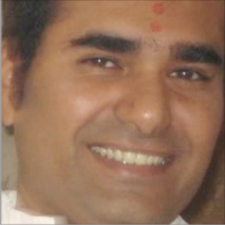Unlike most of the Arab countries and other Islamic nations of the world, Turkey practices politics within a framework of a secular parliamentary representative democratic republic, whereby the Prime Minister of Turkey is the head of government, and of a pluriform multi-party system. Executive power is exercised by the government. Legislative power is vested in both the government and the Grand National Assembly of Turkey. The Judiciary is independent of the executive and the legislature. Its current constitution was adopted on November 7, 1982 after a period of military rule, and enshrines the principle of secularism.
Turkey’s political system is based on a separation of powers. Its constitution is called Anayasa or Constitution.
But it’s that constitution that seems to be under threat, from hardline Islamists of the ruling government itself!
With fears of reversal of the secular nature of their constitution, Turks have started rallying together to fight any assault on the nature and character of the constitution.

Cumhuriyet Mitingleri or ‘The Republic Protests’ represents a series of peaceful mass rallies in Turkey that had taken place in 2007. The first one took place in Ankara on 14 April just two days before the start of the presidential election process. The second one took place in Istanbul on 29 April. Third and fourth rallies had taken place consecutively in Manisa and Çanakkale on 5 May. A fifth rally is scheduled to take place on 13 May in İzmir. (League would have gone to press prior to the date)
The April 14 protest rally was one of the largest that Turkey has seen in years. The target of the first protest was the possible presidential candidacy of the current Prime Minister Recep Tayyip Erdoğan (the outcome of which will be determined by the Turkish Grand National Assembly, in which Erdoğan’s Justice and Development Party (AKP) has a healthy majority).
The size of the rallies may be unprecedented for the recent years, but Turkey’s preservation and maintenance of its secular identity has been an issue and source of tension long before the demonstration.
In the past, Erdoğan has spoken out against the active restrictions on wearing the Islamic-style head scarves in government offices and schools, and taken steps to bolster religious institutions. According to the Guardian Unlimited, Erdoğan showed his Islamist nature when he initiated a move in 2004 to criminalize adultery, which eventually failed under intense pressure from the secularist forces in the country and the European Union, which Turkey has been trying to join.
General Yaşar Büyükanıt, chief of the Turkish military, warned against Islamic fundamentalism in October 2006. Prime minister Erdoğan replied, stating that there was no such threat. In a press conference two days prior to the demonstration Büyükanıt stated: “We hope that someone is elected president who is loyal to the principles of the republic — not just in words but in essence.” This statement was widely interpreted as a hint from the General urging Erdoğan not to run!
This is an unique feature of Turkish politics. The secular nature of the country was obtained almost by force by the Turkish army, under the leadership of Mustafa Kemal Attaturk, the father of Turkish nation. And even today, the armed forces are ever vigilant about any attack on that fiber of the constitution.
For once, in one corner of the world, a proactive army is good for the general populace.






